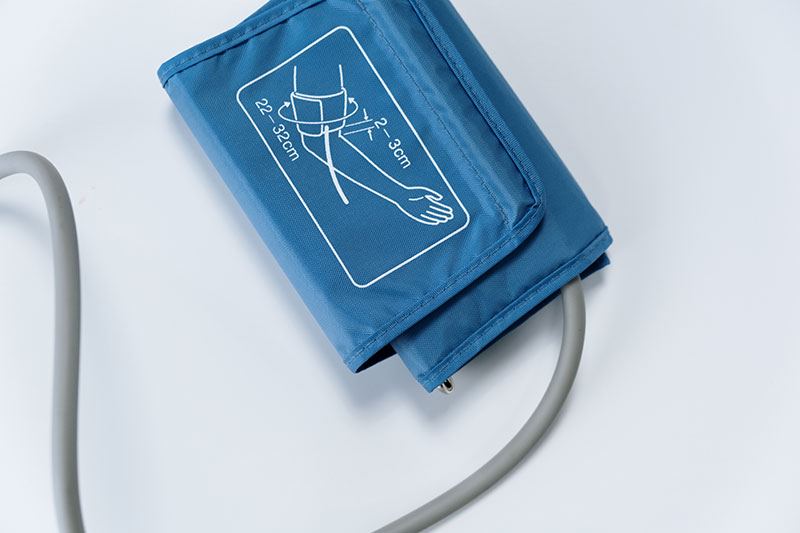Advance Care Plan
Advance care planning allows health professionals to understand and respect a person’s preferences, if the person ever becomes seriously ill and unable to communicate for themselves. We encourage people of all ages to prepare their personal end of life care plans, to give certainty to themselves and their families. More information
Chronic Disease Management Care Plan: Summary
- There are two types of plans that can be prepared by a General Practitioner (GP) for Chronic Disease Management (CDM): GP Management Plans (GPMP); and Team Care Arrangements (TCAs)
- There are two types of plans:
- If you have a chronic (or terminal) medical condition, your GP may suggest a GPMP.
- If you also have complex care needs and require treatment from two or more other health care providers, your GP may suggest TCAs as well.
- Your GP or practice staff must obtain your agreement before providing these plans.
- If a provider accepts the Medicare benefit as full payment for the service, there will be no out-of-pocket cost. If not, you will have to pay the difference between the fee charged and the Medicare rebate.
- If you have both a GPMP and TCAs prepared for you by your GP, you may be eligible for Medicare rebates for certain allied health services. It is up to a GP to determine whether you are eligible for these allied health services which must be directly related to the management of your chronic condition.
- The practice nurse can provide support and monitoring between visits to your GP.
- Your GP will offer you a copy of your plan.
- You and your GP should regularly review your plan/s.
Chronic medical conditions
A chronic medical condition is one that has been (or is likely to be) present for six months or longer, for example, asthma, cancer, heart disease, diabetes, arthritis and stroke. There is no list of eligible conditions. However, these items are designed for patients who require a structured approach and to enable GPs to plan and coordinate the care of patients with complex conditions requiring ongoing care from a multidisciplinary care team. Your GP will determine whether a plan is appropriate for you.
GP Management Plan
A GP Management Plan (GPMP) can help people with chronic medical conditions by providing an organised approach to care. A GPMP is a plan of action you have agreed with your GP. This plan:
- identifies your health and care needs;
- sets out the services to be provided by your GP; and
- lists the actions you can take to help manage your condition.
Team Care Arrangements
If you have a chronic medical condition and complex care needs requiring multidisciplinary care, your GP may also develop Team Care Arrangements (TCAs). These will help coordinate more effectively the care you need from your GP and other health or care providers.
TCAs require your GP to collaborate with at least two other health or care providers who will give ongoing treatment or services to you. Let your GP or nurse know if there are aspects of your care that you do not want discussed with other health care providers.
Review of GPMPs and TCAs
Once a plan is in place, it should be regularly reviewed by your GP. This is an important part of the planning cycle, where you and your GP check that your goals are being met and agree on any changes that might be needed.
Referrals for allied health services
If you have both a GPMP and TCAs prepared for you by your GP, you may be eligible for Medicare rebates for specific individual allied health services that your GP has identified as part of your care. The need for these services must be directly related to your chronic (or terminal) medical condition. If you have type 2 diabetes and your GP has prepared a GPMP, you can also be referred for certain allied health services provided in a group setting.
Health Assessments: Your GP may consider a Health Assessment beneficial for you.
Health assessments are generally made up of the following elements:
- information collection, including taking a patient history and undertaking or arranging examinations and investigations as required;
- making an overall assessment of the patient;
- recommending appropriate interventions;
- providing advice and information to the patient;
- keeping a record of the health assessment, and offering the patient a written report about the health assessment, with recommendations about matters covered by the health assessment; and
- offering the patient’s carer (if any, and if the medical practitioner considers it appropriate and the patient agrees) a copy of the report or extracts of the report relevant to the carer.
Patient consent
The patient or their parent/guardian must be given an explanation of the health assessment process and its likely benefits, and must be asked by the medical practitioner, practice nurse or Aboriginal and Torres Strait Islander health practitioner whether they consent to the health assessment being performed. Consent must be noted on the patient record.
‘Usual Doctor’ and other health professionals
An MBS health assessment item may only be claimed by a medical practitioner, including a general practitioner but not including a specialist or consultant physician. A health assessment should generally be undertaken by the patient’s ‘usual doctor’, that is, the medical practitioner (or medical practitioner in the same practice) who has provided the majority of services to the patient in the past 12 months, and/or is likely to provide the majority of services in the following 12 months. Should a medical practitioner other than the patient’s ‘usual doctor’ or practice nurse undertake the health assessment, a copy of the health assessment record should be forwarded to the patient’s ‘usual doctor’ or practice, subject to the agreement of the patient or their parent/guardian.
The medical practitioner is expected to take a primary role in the following activities when providing a health assessment:
- reviewing and analysing the information collected;
- making an overall assessment of the patient;
- undertaking and arranging investigations;
- making referrals and identifying appropriate follow-up; and
- providing advice to the patient.
Practice nurses and Aboriginal and Torres Strait Islander health practitioners may assist medical practitioners in performing a health assessment, in accordance with accepted medical practice and under the supervision of the medical practitioner. This may include activities associated with:
- information collection; and
- providing patients with information about recommended interventions at the direction of the medical practitioner.
All other components of the health assessment must include a personal attendance by a doctor.
- a health assessment for people aged 45-49 years who are at risk of developing chronic disease
- a type 2 diabetes risk evaluation for people aged 40-49 years with a high risk of developing type 2 diabetes as determined by the Australian Type 2 Diabetes Risk Assessment Tool
- a health assessment for people aged 75 years and older
- a comprehensive medical assessment for permanent residents of residential aged care facilities
- a health assessment for people with an intellectual disability
- a health assessment for refugees and other humanitarian entrants
The decision to use any one of these four MBS health assessment items to carry out a health assessment will depend on the practitioner’s clinical judgement based on the complexity of the presentation and the type of health assessment used.




